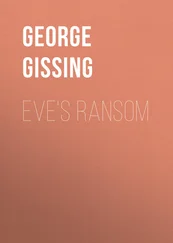George Gissing - Denzil Quarrier
Здесь есть возможность читать онлайн «George Gissing - Denzil Quarrier» — ознакомительный отрывок электронной книги совершенно бесплатно, а после прочтения отрывка купить полную версию. В некоторых случаях можно слушать аудио, скачать через торрент в формате fb2 и присутствует краткое содержание. Жанр: foreign_prose, literature_19, foreign_antique, на английском языке. Описание произведения, (предисловие) а так же отзывы посетителей доступны на портале библиотеки ЛибКат.
- Название:Denzil Quarrier
- Автор:
- Жанр:
- Год:неизвестен
- ISBN:нет данных
- Рейтинг книги:4 / 5. Голосов: 1
-
Избранное:Добавить в избранное
- Отзывы:
-
Ваша оценка:
- 80
- 1
- 2
- 3
- 4
- 5
Denzil Quarrier: краткое содержание, описание и аннотация
Предлагаем к чтению аннотацию, описание, краткое содержание или предисловие (зависит от того, что написал сам автор книги «Denzil Quarrier»). Если вы не нашли необходимую информацию о книге — напишите в комментариях, мы постараемся отыскать её.
Denzil Quarrier — читать онлайн ознакомительный отрывок
Ниже представлен текст книги, разбитый по страницам. Система сохранения места последней прочитанной страницы, позволяет с удобством читать онлайн бесплатно книгу «Denzil Quarrier», без необходимости каждый раз заново искать на чём Вы остановились. Поставьте закладку, и сможете в любой момент перейти на страницу, на которой закончили чтение.
Интервал:
Закладка:
Denzil uttered roars of laughter; the story was exactly of the kind that made appeal to his humorous instincts.
"Has the ferment subsided?" he asked.
"Tolerably well; leaving a good deal of froth and scum, however. The worst of it was that, in the very week when those makebates had departed, there came down on us a second plague, in the shape of Mrs. Hitchin, the apostle of—I don't quite know what, but she calls it Purity. Of course, you know her by repute. She, too, had the Public Hall, and gave addresses to which only women were admitted. I have a very strong opinion as to the tendency of those addresses, and if Rabelais had come to life among us just then—but never mind. The fact is, old Polterham got into a thoroughly unwholesome condition, and we're anything but right yet. Perhaps a little honest fighting between Liberal and Tory may help to clear the air.—Well, now, that brings me to what I really wish to talk about. To tell you the truth, I don't feel half satisfied with what I have done. My promise to stand, you know, was only conditional, and I think I must get out of it."
"Why?"
"Mary was rather tickled with the idea at first; naturally she had no objection to be Mrs. M.P., and she persuaded herself that I was just the man to represent Polterham. I felt rather less sure of it, and now I am getting pretty well convinced that I had better draw back before I make a fool of myself."
"What about your chances? Is there any hope of a majority?"
"That's more than I can tell you. The long-headed men, like your Uncle Sam (an unwilling witness) and Edward Coke, say that the day has come for the Liberals. I don't know, but I suspect that a really brisk and popular man might carry it against either of the Welwyn-Bakers. That fellow Hugh will never do—by the way, that might be the beginning of an election rhyme! He's too much of a blackguard, and nowadays, you know, even a Tory candidate must preserve the decencies of life."
Denzil mused, and muttered something indistinct.
"Now listen," pursued the speaker, shifting about in his chair. "What I want to say is this: why shouldn't you come forward?"
Quarrier pursed his lips, knit his brows, and grunted.
"I am very serious in thinking that you might be the best man we could find."
And Mr. Liversedge went on to exhibit his reasons at some length. As he listened, Denzil became restless, crossing and recrossing his legs, spreading his shoulders, smiling, frowning, coughing; and at length he jumped up.
"Look here, Toby!" he exclaimed, "is this a self-denying ordinance? have you and Molly put your heads together to do me what you think a good turn?"
"I haven't spoken to her, I assure you. I am sincere in saying that I don't wish to go through with it. And I should be right heartily glad to see you come out instead."
The face of the younger man worked with subdued excitement. There was a flush in his cheeks, and he breathed rapidly. The emotion that possessed him could not be altogether pleasurable, for at moments he cast his eyes about him with a pained, almost a desperate look. He walked up and down with clenched fist, occasionally digging himself in the side.
"Toby," he burst out at length, "let me think this over I can't possibly decide at once. The notion is absolutely new to me; I must roll it about, and examine it on all sides."
Mr. Liversedge cheerfully agreed, and, after a little more talk, he went his way to business, leaving Denzil alone in the snuggery. There sat the young man in deep but troubled meditation. He sat for nearly an hour. Then his sister came in.
"Denzil, you are wanted. Mr. Wykes wishes to see you. Shall I send him here?"
"Mr. Wykes! What about, I wonder? Yes, let him come."
A clumping was heard without, and the bright face of the Institute's Secretary, so strongly in contrast with his wretched body, presented itself in the doorway. Quarrier received him with a friendly consideration due rather to pity than to any particular interest in the man himself. He placed him in a comfortable chair, and waited in attentive attitude for an explanation of the call. Mr. Wykes lost no time in making known his business; he told what had happened at the Institute, and respectfully begged for Mr. Quarrier's aid in averting disappointment on the next evening.
"I am sure, sir, that your appearance on our platform would give very general pleasure. I should have time to post announcements here and there. We should have a splendid hall."
"The deuce! But, Mr. Wykes, it is no such simple matter to prepare a lecture in four-and-twenty hours. What am I to talk about?"
"Any subject, sir, that would be of interest to a wide-awake audience. If I might suggest, there are your travels, for instance. And I understand that you are deeply conversant with the Northern literatures; I am sure something"–
"Pardon me. I hardly think I should care to go so far away for a theme."
The Secretary heard this with pleasure.
"All the better, Sir! Any subject of the day; nothing could be more acceptable. You probably know our position at the Institute. In practice, we are something like a Liberal Club. You have heard that the other party are going to start a Society of their own?"
"I have—a Society with an imbecile Dame." He pondered. "Suppose I were to talk about 'The Position of Woman in our Time'?"
"Capital, Mr. Quarrier! Couldn't be better, sir! Do permit me to announce it at once!"
"It's rather a ticklish responsibility I'm undertaking—but—very well, I will do my best, Mr. Wykes. Who is chairman?"
"Mr. William Glazzard, sir."
"Ho ho! All right; I'll turn up to time. Eight o'clock, I suppose? Evening dress, or not? Oh, of course, if it's usual; I didn't know your custom."
Mr. Wykes did not linger. Left alone again, Denzil walked about in excited mood. At length, with a wave of the arm which seemed to announce a resolution, he went to the drawing-room. His sister was reading there in solitude.
"Molly, I'm going to lecture at the Institute tomorrow, vice somebody or other who can't turn up. What subject, think you?"
"The Sagas, probably?"
"The Sagas be blowed! 'Woman's Place in our Time,' that's the title."
Mrs. Liversedge laughed, and showed astonishment.
"And what have you to say about her?"
"Wait and see!"
CHAPTER VI
At the distance of a mile and a half from Polterham lay an estate which had long borne the name of Highmead. Here had dwelt three successive generations of Glazzards. The present possessor, by name William, was, like his father and grandfather, simply a country gentleman, but, unlike those respectable ancestors, had seen a good deal of the world, and only settled down amid his acres when he was tired of wandering. His age at present was nearing fifty. When quite a young man, he had married rather rashly—a girl whose acquaintance he had made during a voyage. In a few years' time, he and his wife agreed to differ on a great many topics of moment, and consequently to live apart. Mrs. Glazzard died abroad. William, when the desire for retirement came upon him, was glad of the society of a son and a daughter in their early teens. But the lad died of consumption, and the girl, whose name was Ivy, for a long time seemed to be clinging to life with but doubtful tenure. She still lived, however, and kept her father's house.
Ivy Glazzard cared little for the pleasures of the world—knew, indeed, scarcely more about them than she had gathered from books. Her disposition was serious, inclined to a morbid melancholy; she spent much time over devotional literature, but very seldom was heard to speak of religion. Probably her father's avowed indifferentism imposed upon her a timid silence. When the Revivalist services were being held in Polterham, she visited the Hall and the churches with assiduity, and from that period dated her friendship with the daughter of Mr. Mumbray, Mayor of the town. Serena Mumbray was so uncomfortable at home that she engaged eagerly in any occupation which could excuse her absence for as many hours a day as possible. Prior to the outbreak of Revivalism no one had supposed her particularly pious, and, indeed, she had often suffered Mrs. Mumbray's rebukes for levity of speech and indifference to the conventional norm of feminine behaviour. Though her parents had always been prominent in Polterham society, she was ill-educated, and of late years had endeavoured, in a fitful, fretful way, to make amends to herself for this injustice. Disregarding paternal censure, she subscribed to the Literary Institute, and read at hap-hazard with little enough profit. Twenty-three years old, she was now doubly independent, for the will of a maiden aunt (a lady always on the worst of terms with Mr. and Mrs. Mumbray, and therefore glad to encourage Serena against them) had made her an heiress of no slight consideration. Young men of Polterham regarded her as the greatest prize within view, though none could flatter himself that he stood in any sensible degree of favour with her. There seemed no reason why Miss Mumbray should not marry, but it was certain that as yet she behaved disdainfully to all who approached her with the show of intention. She was not handsome, but had agreeable features. As though to prove her contempt of female vanity and vulgar display, she dressed plainly, often carelessly—a fact which of course served to emphasize her importance in the eyes of people who tried to seem richer than they were.
Читать дальшеИнтервал:
Закладка:
Похожие книги на «Denzil Quarrier»
Представляем Вашему вниманию похожие книги на «Denzil Quarrier» списком для выбора. Мы отобрали схожую по названию и смыслу литературу в надежде предоставить читателям больше вариантов отыскать новые, интересные, ещё непрочитанные произведения.
Обсуждение, отзывы о книге «Denzil Quarrier» и просто собственные мнения читателей. Оставьте ваши комментарии, напишите, что Вы думаете о произведении, его смысле или главных героях. Укажите что конкретно понравилось, а что нет, и почему Вы так считаете.












